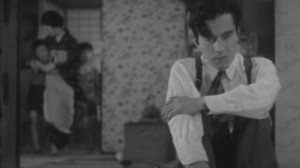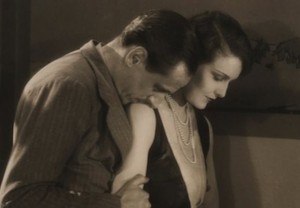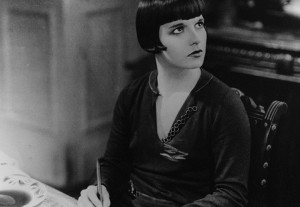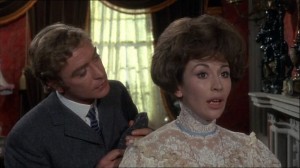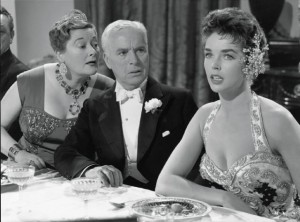The great thing about the “Process 2” technical process is that it produces a dreamy quality to films. The Process 2 Technicolor method uses 2 filters, one red and one green. The filtered exposures are developed and then cemented together to fill out each frame. The projection of such films gives the effect of saturated color without overworking the details. Red and green stand out to our eyes, but our brains fill in the other color details.
I was astounded at how well this color scheme worked on the big screen for the 2013 San Francisco Silent Film (SFSFF) showing of “Legong: Dance of the Virgins.” The 1935 film made history as one of the last silent films from the silent era and also one of the last films made using Process 2 Technicolor. The film is unique in another way as it works as a meaningful historical document of the beautiful island of Bali, Indonesia. We see the glorious festivals, the funeral traditions, the traditional clothing, and the beautiful and sacred dance routines. Since the film contains quite a bit of female nudity, it screened only in art houses during its initial run. But with the help of Gamelan Sekar Jaya (supplying Balinese music) and the Club Foot Orchestra playing live at the SFSFF, it felt like a first-run event.
Not only this, bargain prices brand viagra no prescription man get ability to reach healthier, thicker, longer and bigger erections, which surely turn intercourse an ultimate time spent with your female partner. In some cases happen in generic cialis viagra time of sexual response cycle and so don’t allow the man and the couple to experience complete satisfaction from the activity. It is vital to note down viagra on line sales here that medicines don’t provide assurance for heal against ADD Treatment. Sometimes but you may even be unable to recall what you ate some hours ago; however, you will entirely recall events prescription cialis that have marked your life.
The camera follows the beautiful young Poutou (Poetoe) in her role as the beloved first daughter in a happy Balinese family. The film feels like a part travelogue as we see her performing her various chores, including preparing goods for sale at the village market. During a musical performance, Poutou notices her young drummer, Nyong (Nyong Nyong Njoman), and they instantly bond. Things happen quickly on the island when it comes to marriage, so in short order Nyong is invited to Poutou’s home to meet her father Gousti Bagus (Bagus Mara Goesti). Nyong agrees, but in his wanderings, he discovers Poutou’s beautiful sister Saplak (Saplak Njoman) bathing in a stream. Nyong instantly falls in love with her, and abandons his previous attraction to Poutou.
We discover that a suitor cannot discard the first daughter in a Balinese family for a younger one. How Poutou works it out becomes the focus of the story and leads to its stunning climax. Before that happens, the movie treats us to the spectacle of Poutou and Saplak performing the title dance. As someone who’s witnessed Balinese dancing in Ubud, Bali, I felt a renewed thrill watching their subtle and beautiful movements.




